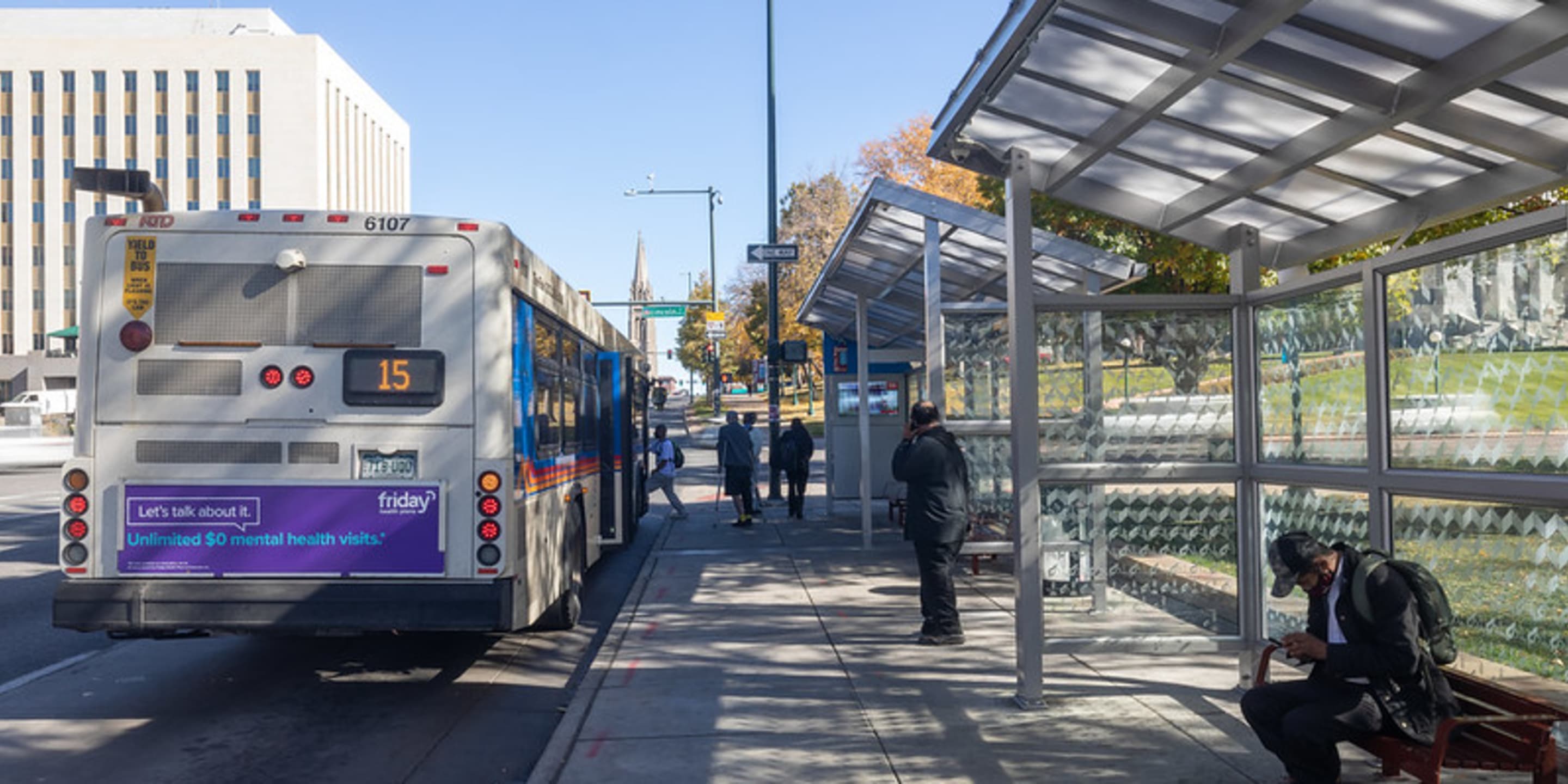
RTD announces Transit Assistance Grant awards for 181 area organizations to help clients
RTD will provide $1 million worth of grant funding to 181 qualifying nonprofit and community social service organizations or governmental entities as part of the agency’s inaugural Transit Assistance Grant (TAG) program.
Selected awardees include resource centers, re-entry programs, city and county governmental agencies, educational institutions, training programs, and non-profit organizations serving low-income, unhoused, disability, immigrant/refugee, seniors, youth, Black, indigenous, people of color, LGBTQ+, and other underrepresented communities. The program was specifically designed to support individuals who need a reliable transportation option to support emergent or immediate need.
Grant awards range from $250 worth of fare media up to $50,000 per selected organization and will be distributed in the form of 10-ride ticket books equivalent to the dollar amount awarded. TAG recipients must distribute the tickets to their clients or constituents at no cost to them.
“Public transportation is the great societal equalizer, enabling people to get where they need to go when they need to get there,” said Debra A. Johnson, RTD General Manager and CEO. “This inaugural program was intentionally designed to meet pressing and urgent needs in the community, whether that be immediate access to essential services or assisting during times of crisis, supporting the unhoused or aiding newcomers to the metro area. As a partner whose work has a direct effect on the overall health of the region, RTD approached this program guided foremost by fairness and equity.”
RTD set aside $1 million for the TAG program and accepted applications Jan. 16 – Feb. 29. RTD launched the new grant program in response to the 2023 Systemwide Fare Study and Equity Analysis. The agency received 211 applications for TAG funding and awarded approximately 85% of applicants. In total, RTD selected 181 organizations to receive a grant.
“We were pleased by the volume of applications received,” RTD Manager of Market Development Theresa Rinker said. “This tells us that there is a great need in our community, and we look forward to seeing the impact this grant will have on the people we serve.”
TAG is meant to fill the temporary gap for customers who have urgent transportation-related requirements, and to provide organizations that serve these customers with time to educate and enroll clients in LiVE, RTD’s income-based fare discount program for eligible customers.
The Action Center’s Director of Programs, Laurie Walowitz, noted the positive impact TAG will have on the community.
“Through this program, we will be able to provide much needed RTD tickets to those in our community experiencing financial hardship,” she said. “Coupling these tickets with an introduction to the LiVE program – and assisting with enrollment in the LIVE program – will create a longer-term, more affordable transportation solution for those who qualify. The Action Center thanks RTD for prioritizing the transportation needs of our community."
Cathy Alderman, Chief Communications and Public Policy Officer for the Colorado Coalition for the Homeless, added, “Transit services are a necessity for people experiencing homelessness to get to medical appointments, case management meetings, lease-ups, work and shelter. This generous grant from RTD will help our hardworking case managers to better serve our unhoused neighbors in the Denver metro area and help those individuals meet their basic needs.”
Emergency food assistance provider Community Table was also awarded 10-ride ticket books as a TAG recipient. "I'm truly grateful for the Transit Assistance Grant award,” President and CEO Sandy Martin said. “It ensures that everyone can access our pantry, attend job interviews or get medical care. With this grant, we're not just giving rides; we're giving hope and a brighter future to everyone we serve."
TAG award selection criteria
A selection panel of RTD staff determined grant recipients based on clear and transparent evaluation criteria, including whether an organization:
- Is a 501(c)(3) nonprofit organization, social service or governmental agency
- Serves clients with immediate needs
- This is defined as individuals who need urgent or immediate access to essential services, education, training or employment, as well as assisting with crisis intervention, supporting the unhoused, aiding newcomers to the metro area and helping individuals with severe health conditions
- Is in good account standing with RTD
- Agrees to distribute the fare media only to clients at no cost
- Agrees to provide quarterly reports to RTD that document how many tickets were issued and approximately how many unique immediate-needs clients were assisted
- Will implement a process that informs and assists clients with enrollment in LiVE, RTD’s income-based fare discount program